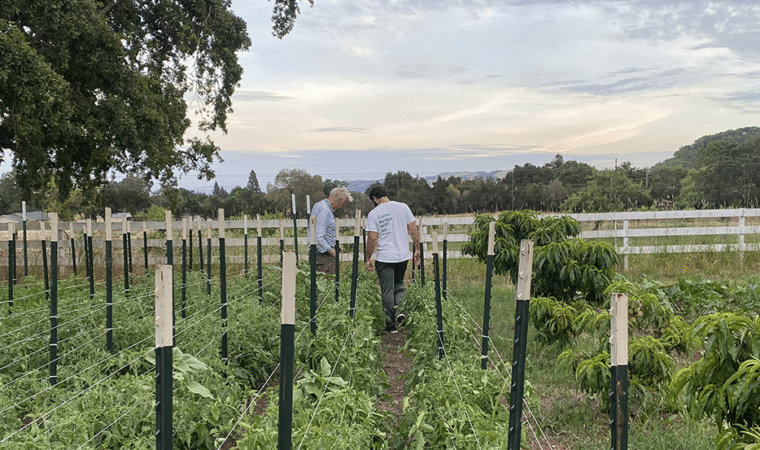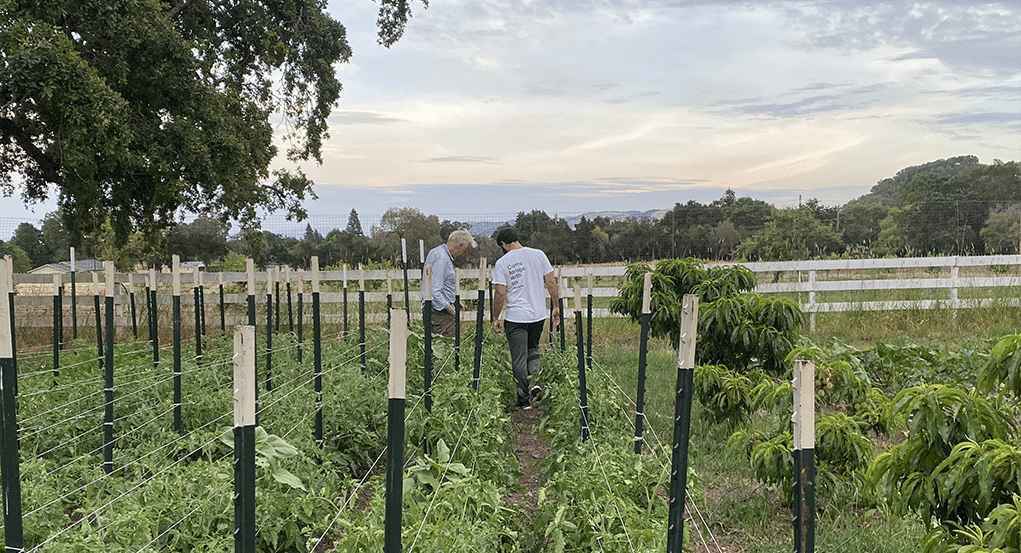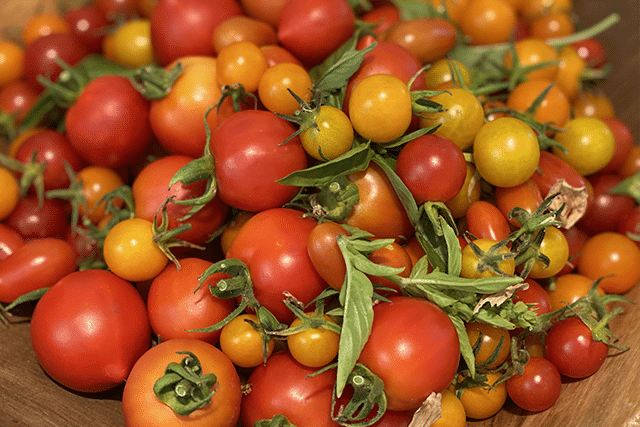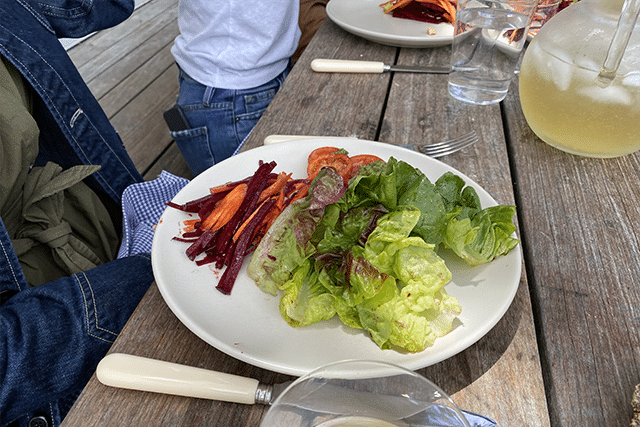



On a back porch in Northern California sits a man with deep roots in organic food. He wears glasses and a button-down shirt, looking very Californian as he sits in the sun. The sun has that quality to it that is so ubiquitous in Sonoma, it streams in through oak leaves while a light breeze gently stirs shadows to the background melody of birdsong. Stephen seems like a contented man, casually enjoying his own slice of Universe on a Thursday evening.
It’s exactly the place you’d imagine Stephen Williamson talking about the Forager Project and his desire to make organic food the norm and not the outlier for American consumers. He has a meditative energy and with a refreshing lack of ego he quickly admits to not knowing all of the answers and with that same quickness can launch into a poetic musing about the beauty and power of an Early Girl tomato.

“My father loved the garden.” he muses when asked about his history with growing food for himself. “He was a true Scotsman and came to the United States after World War II. He always had a garden and a greenhouse and a vegetable garden and so I learned to appreciate gardens from him. My Scottish aunt was a very good gardener. And my mother’s sister was also a very good gardener and loved to garden. So, I always grew up with gardens. There’s something refreshing about gardens and nature versus freeways and mankind.”
When asked if it was his gardening genetics that got him into the organic food business he laughed, “Why people do things and don’t do things in families, that’s complicated. I can just say that I get a kick out of nature and I love watching green beans pop out of the soil quickly and onions grow and marvel at Oak trees which you can see in reflections in my window there. We are subservient to nature. Let’s get down to it, right?”
As Chairman and CEO of Odwalla in the 90s to early 2000s, Stephen is no greenhorn when it comes to navigating the difficult waters of creating organic food in an industry dominated by chemically processed foods. When faced with choosing a single initiative he wished he could make for the US agricultural industry he focused on organic foods.
“Why don’t we have to label everything that’s not organic and not label organic? Let’s flip the tables. That in and of itself would be the right way to go.” He shrugs his shoulders as he says this, with an air of affable frustration at the fact that something so seemingly simple hadn’t been accomplished yet.
Stephen is no stranger to challenges, and after leaving Odwalla decided that he wanted to take his passion for making good food into a new project, one that would not only start out as an organic product, but whose main mission would involve staying organic, no matter what.
“Some might argue insanity,” he says about his drive to create the Forager Project. “In my Odwalla days, we always failed in organic. Organic never made money, it never had the velocity.” Earlier in July, Coca Cola, who purchased Odwalla in 2001 announced it would be bringing Odwalla’s organic juice brand to a close after years of struggling to gain a strong foothold in the US market.

“I don’t know. I just kind of felt like it’s a superior way to raise food and why not create a company that’s completely based on organic and that we would not move off organic, we would do nothing that didn’t meet organic standards and that we would hold that as the highest standard. As the name Forager suggests, part of our philosophy is to wander and seek and learn and keep going. And so, Forager has been a journey from its first bottle of beet juice to a cultured cashew yogurt. And really Nature has led us on the forage.”
When talking to Stephen, the subject of nature is never far from the periphery of the conversation. Stephen lives in Sonoma, surrounded by trees and his own garden which he tends with fatherly pride and affection. His love of organic, simple food was cultivated with a lifetime of experiences.
“Growing up I remember well thinking I was deprived because I didn’t get Twinkies in my lunch and all my classmates did.” he says with a wry smile. “ I had to eat something like an apple and a piece of cheese as my dessert and I clearly was not well educated and brought up because I didn’t get a Twinkie or Ho Ho or Ding Dong.”
But as Stephen got older his desire for Twinkies was replaced by the wonder of what was around him and the cultural movement taking place around organic food.

“Northern California is a pretty great place to live. I went to Berkeley for college. And when I was there, Chez Panisse opened up. Alice Waters, she just did things so simply. You get to take an orange beet and put beautiful sea salt and a drizzle of olive oil and lemon on it and that was a salad, and that was incredibly simple but great. And then when I was at Berkeley, I lived off campus and cooked for four years and I never lost my appreciation for great food that can be really simple.”
In fact, the love of simple food was the genesis of Forager Project. From its beginnings in beet juice, Forager Project now offers a variety of cashew-based organic food products. And as passionate as Stephen speaks about keeping Forager organic, it’s the company’s practices where that mission really shines through.
Forager works directly with farmers in Cambodia, Vietnam, the Ivory Coast and India to get the sustainable organic cashews that go into their products. Besides the environmental factors that make growing cashews in the US less sustainable due to the need for excessive water and irrigation, there’s a community factor to it, as well.
“We are providing a benefit to those societies that grow cashews by paying for them that were pushing organics into Cambodia and Vietnam and India and the Ivory Coast, which I think is very positive.” And while he admits there is always more work to do, his desire to keep Forager forever organic is the driving force behind the sustainable practices and the desire to work with indigenous people.
When talking about the future of organic and plant-based diets, Stephen points out that there are things people can do right now to help increase their consumption of healthier food while supporting local growers. He sees hope in the increasing desire to know where our food actually comes from.
“I just think people should embrace the idea that they might want to really think about where their food comes from and how it’s made and who are the people behind it.” While he often avoids prescriptive advice, there’s one thing he thinks everyone can benefit from. “And that if you go to a local farmer’s market and can buy your Early Girl tomato from your local patch, you’re starting at the highest level of food from my perspective there.”

Tomatoes from Stephen’s garden
Stephen’s love of simple food runs deep. He can wax poetic about the perfect doughnut peach and the awe-inspiring beauty of his Early Girl tomatoes. To him, the simpler the food, the better it is which is the origin of Forager Project’s oft-repeated phrase “Let good food be.”
“It’s pretty straightforward, let good food be. I mean, let it be. This time of year my tomatoes are coming in, just starting. The early tomatoes are always the baby cherries and the Early Girl out here in Northern California. I mean, what’s better than a sliced Early Girl with some Jacobsen sea salt, a little bit of lemon juice, a drizzle of olive oil or no olive oil, it depends if you don’t like oil. It’s hard to beat. I mean, I can’t improve upon that.”
While he’d be described as flexitarian, his journey has not always been simple. When asked if he had any advice for people looking to move towards organic, plant-based living he offered a bit of helpful advice.
“It shouldn’t be intimidating. It’s quite easy if someone helps you. It’s like riding a bike. When you start riding a bike, it’s a couple of crashes and it hurts but the minute you get balance, it’s kind of a liberating experience. And the same thing comes with food. I think a lot of people get afraid of food whether they don’t want to fail, or they don’t think they’ve got the skill set but there’s so much to be gained by being close to your food. And I’m one who really does think that meals should be eaten at a table either alone but preferably with your family or friends.”

Food tastes best when shared
As the sun begins to set in Northern California, Stephen looks away from the Zoom camera.
“If you think about life, a life well-lived has to include wandering and seeking. If you aren’t wandering and seeking, you’re missing out on a really incredibly important key tenet of how to live. I just think that’s incredibly important.”

Michelle is a writer, creator, and plant lover. Based in Austin, TX her passion is exploring cultural evolution through the lens of agriculture and food.